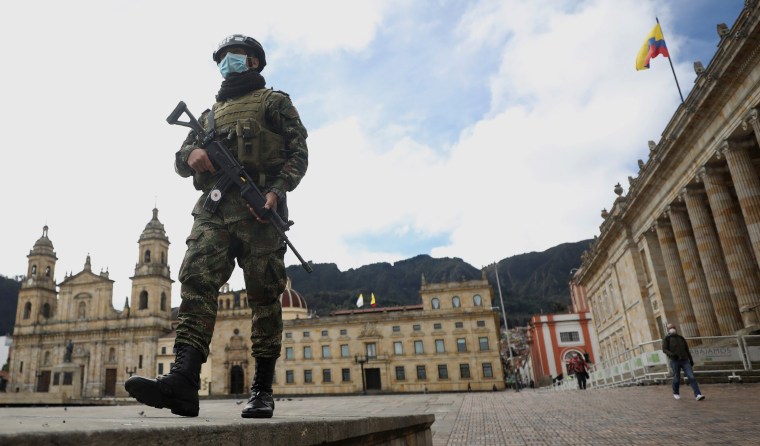The Colombian Attorney General’s office announced on October 19, 2020, that it will file criminal charges against Diana Díaz, a former public TV station manager, for leaking to the Bogotá-based Foundation for Press Freedom (FLIP) a recording of a conversation in which her supervisor suggested canceling a program because its host had criticized a proposed law supported by the government, according to news reports.
The October 19 communiqué from the Attorney General’s office says that Díaz, the former manager of Señal Colombia, which is based in Bogotá and provides national coverage, will be charged on November 18 with revealing confidential information in violation of her government contract. If convicted she would be fined and banned from working in the public sector, Jonathan Bock, acting director of the FLIP, told CPJ.
However, Bock said that because Díaz was apparently being pressured by a public official to censor a TV program, she had the right to take that information to the media.
The pending charges against Díaz stem from a complaint filed against her in March 2019 by Francisco Pablo Bieri, the former head of Colombia’s public media network RTVC and Diaz’s supervisor. He claims that Díaz secretly recorded a December 6, 2018, meeting and then leaked the audio to FLIP.
According to a transcript of the audio published by the FLIP-sponsored Liga Contra el Silencio news website, Bieri lashed out at Santiago Rivas, host of the cultural program “Los Puros Criollos.” The day before, Rivas had publicly criticized a proposed telecommunications law that he said would reduce the independence of Colombia’s public TV stations.
According to a transcript, Bieri said that as a contractor for Señal Colombia, Rivas had no right to criticize the same government that was issuing his paychecks. He then suggested canceling the program or airing its episodes after midnight to reduce viewership. At one point, according to the transcript, he says: “Let’s kill the production.”
Rivas told CPJ via messaging app that all episodes of his program were eventually aired in prime time by Señal Colombia. After the publication of the recording Bieri was widely criticized by journalists and public officials for promoting censorship in the public media, according to reports.
Bieri, who has denied any wrongdoing, is under investigation by the Inspector General’s office, which monitors misconduct by public officials, according to news reports. He resigned from RTVC in January 2019 but was hired eight months later as President Iván Duque’s communications advisor.
Díaz resigned from Señal Colombia in January 2019 and now works as head of strategic projects for the Bogotá public TV station Canal Capital. She told CPJ via messaging app that she could not speak about her case due to the ongoing investigation.
Bock said that the Attorney General’s office tried to inspect FLIP’s Bogotá office and check its visitor logs for December 2018 and January 2019, around the time Díaz leaked the audio. But Bock, who has been called to testify in the case, said that FLIP refused to cooperate and on October 19, 2020, sent a letter to the Attorney General’s office protesting its prosecution of Díaz.
“This is total overkill,” Bock told CPJ in a telephone interview from Bogotá.
Paola Tovar, a spokeswoman for the Attorney General, would not comment to CPJ about the case. But in its statement, the Attorney General’s office said that it respects freedom of expression and called on press freedom organizations to exercise “prudence” and to “avoid misinterpretations concerning ongoing investigations.”
